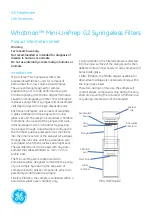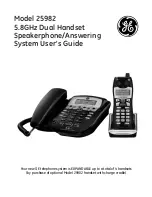
77
START-UP
Chapter 10
SEALING CHECK
Conclude the rinsing phase by closing tap R2 and raise the pressure inside the solar circuit to at least 4 bar
(as long as this does not exceed the pressure accepted for the diff erent components). Close tap R1 and
then also close the water tap.
Open the shut-off valve VI, use the electronic control unit to activate the solar circuit pump and bleed all
air from the circuit (see fi gure 10.3).
Carefully visually check the sealing of all pipes and
connections.
If desired and weather conditions permitting, the
system can be made to run for a test period using
just water.
This can only be performed if there is no risk of
freezing.
Unfortunately it continuously occurs that new
systems freeze because the owner has bought the
anti-freeze but has not yet introduced it into the
system. Instead of being caught out by the fi rst
critical autumn day it is a good idea to add the
anti-freeze immediately, after having checked
that functioning takes place without problems
for a few days
.
As an alternative the sealing check can be performed
with compressed air before the rinsing process. If a
loss of pressure is noted it is advised to check the
sealing of all critical connections using soapy water.
WASHING THE SOLAR CIRCUIT
Connect both taps to the discharge using rubber pipes, open them and empty the system. The quantity of
water can be measured and used for the preparation of the water and glycol mix. The real amount of water
contained in the system is greater because a small amount of water always remains inside the collector.
If the collector circuit cannot be completely emptied, it is possible to “push the water out” while fi lling is
taking place (see following paragraph).
The colour and viscosity of the fl uid helps to recognise when not only water escapes from tap R2 but the
water and glycol mixture.
The water remaining inside the circuit puts the system in danger of freezing if the latter is not fi lled again
immediately.
VI
R1
R2
fi gure 10.3












































